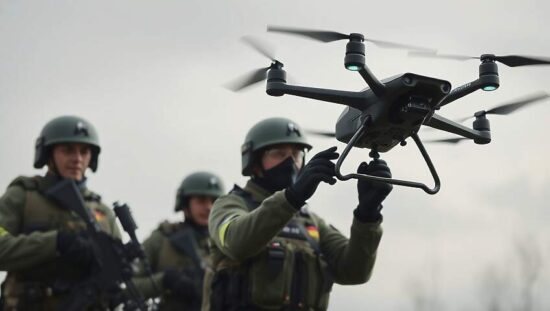Germany is implementing a comprehensive drone defense plan, spurred by a significant uptick in reported illegal drone flights across the nation. Interior Minister Alexander Dobrindt, of the CSU party, has unveiled the strategy, framing it as a crucial response to the evolving landscape of hybrid threats – a combination of cyberattacks and unconventional security challenges.
The government is committing an immediate €100 million investment to bolster national drone defense capabilities. The plan encompasses a three-pronged approach: advanced radar detection systems for early identification, electronic jamming technology to disrupt unauthorized drone operations and the deployment of interceptor drones equipped to neutralize threats. Notably, the Federal Police have been tasked with actively pursuing, intercepting and, if necessary, disabling detected drones.
The rapid rollout of the new drone defense unit highlights the perceived urgency of the situation. The initiative will involve an additional 130 police officers, deployed in decentralized locations around key airports, within the capital city and in the vicinity of strategically important facilities. To ensure nationwide coverage and rapid response times, the units will be supported by helicopter deployments.
Critics, however, are raising concerns about the scope and potential overreach of the plan. Some legal experts are questioning the legality of drone “shootdown” authorization, emphasizing the need for clear legal frameworks governing such actions. Others express reservations about the potential for civilian misuse of the newly deployed technology and the inevitable escalation of the drone arms race. The decentralized nature of the deployments also raises questions about centralized coordination and potential inconsistencies in enforcement.
While the government emphasizes the need to counter an increasing threat, the rapid implementation and aggressive terminology employed – “shootdown” – suggest a potentially reactive response that warrants careful scrutiny and ongoing evaluation to ensure proportionality and compliance with legal and ethical boundaries. The long-term implications of normalizing a “drone defense” posture on German sovereignty and civil liberties remain an open question.





